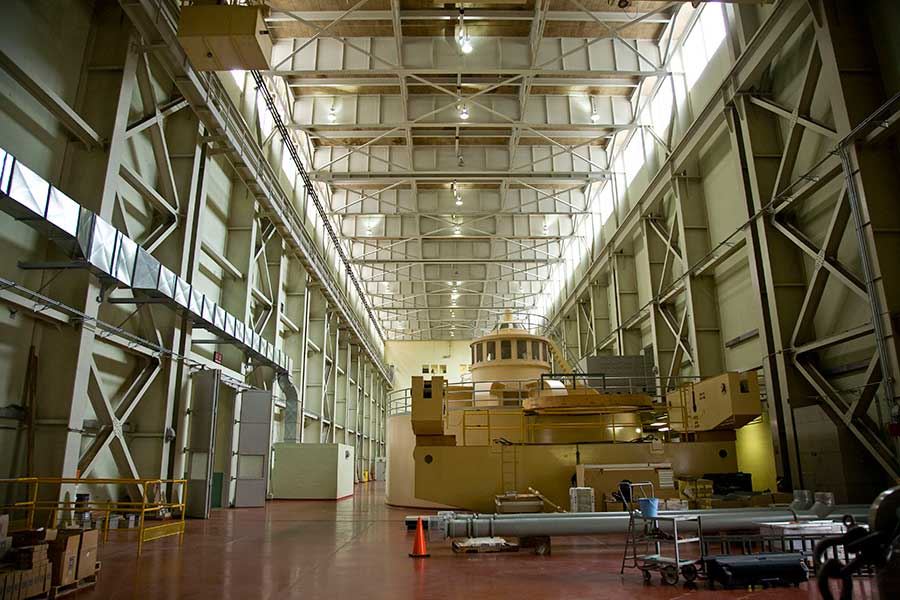
Four Days of Uncommon Tours & Talks, June 13-16, 2018
The Montana Preservation Alliance (MPA) in partnership with the USDA Forest Service Region 1 is excited to announce the next Montana Preservation Road Show, a touring historic preservation conference to be held June 13-16 at Cedar Creek Lodge in Columbia Falls and around the Flathead/Glacier region. The Road Show launches from a different small town every other year with the mission to immerse participants in the history and culture of rural Montana, spotlight great local preservation efforts, and raise awareness of the importance of preserving Montana’s historic buildings and cultural landscapes.
In the Flathead, that means taking the path less traveled to see barns and homesteads, tribal landscapes, industrial buildings, ranger stations, depots, hotels, and more. Along the way, veteran preservationists, local historians, tribal experts, archaeologists, teachers and professors all join in to provide a well-rounded portrait of the historic places that define the Flathead area and her people.
“By getting people out of the conference room and into the field to experience history first hand, we all gain a better appreciation and deeper understanding of the places in our past,” says MPA Outreach Director Christine Brown. “There are simply remarkable places hidden in the rural corners of Montana, and the Road Show aims to shed a light on the importance of these places – how they played a role in the past, how they’ve been preserved or need to be preserved, and how they continue to be an important factor in our community’s economic and cultural well-being.”
You don’t have to be an historian or professional preservationist to join this conference – just an enthusiastic traveler, listener, and lover of history. The hardest part of the Road Show is choosing from several concurrent tour and/or talk options during the four days. “The Flathead has such a wealth of architecture, history, and cultural sites to learn about, we’ve really had a hard time narrowing down all the choices to fit into four days,” says Brown. “It will be a tough decision for a lot of folks to choose which all-day and half-day tours they want to take.” For those who can’t attend the full conference, tours on Saturday offer a one-day registration fee.
Tour Highlights
- Explore the North Fork Road and its history on a trip to Big Creek Work Center, Polebridge, and other North Fork landmarks with local historians and the Flathead National Forest archaeologist.
- Head east to Browning and St. Mary Lake to learn Blackfeet history and culture with tribal experts
 See the Flathead through the eyes of the merchants and magnates responsible for high-style landmarks like Belton Chalet, Lake McDonald Lodge, the Conrad Mansion and Cemetery and more, with historian Ellen Baumler and architect, Jim McDonald
See the Flathead through the eyes of the merchants and magnates responsible for high-style landmarks like Belton Chalet, Lake McDonald Lodge, the Conrad Mansion and Cemetery and more, with historian Ellen Baumler and architect, Jim McDonald- Discover post-World War II industrial architecture at Hungry Horse Dam, and at the ruins of the Columbia Falls Aluminum Company plant with local and national experts.
- Choose a Saturday tour to learn about Salish-Kootenai history and culture; Spotted Bear Ranger District history; or Lower Valley historic barns.
Workshop & Tour Highlights
- Montana’s Small Towns: Then, Now, and Tomorrow with Hal Stearns
- Preserving historic wood windows -- all day with Forest Service and preservation specialists
- Historic Preservation Funding short course with the Montana History Foundation
- Exploring Ice Patch Archaeology with archaeologist, Craig Lee
- Preserving Montana’s Majestic Fire Lookout Towers with Chuck Manning
- Interpreting the literary legacy of Flathead writers and authors
Book Early
Conference participants are encouraged to book hotel reservations as early as possible due to high demand for rooms near Glacier National Park. Road Show conference headquarters will be at the Cedar Creek Lodge in Columbia Falls with block room rates starting at $179/night until April 14. MPA also has room blocks reserved until May 13 at Belton Chalet in West Glacier (starting at $140/night); Glacier Highland Motel in West Glacier (starting at $105/night until); and the West Glacier Motel (starting at $99/night).
Online registration for the conference will open on February 5. Registration is $200 for members or $225 for non-members and includes a reception on June 13; all-day tour, lunch, and evening presentation on June 14; and talks, lunch, and half-day tour on June 15. Tours on June 16 are optional/a-la-carte and cost $50 to $100 each.
Our Partners
MPA is proud to announce that the Road Show is supported for the next three years by a major grant from the National Endowment for the Humanities: Exploring the human endeavor. Since 2012, our award-winning conference has blazed new pathways with the USDA Forest Service Region 1, Bureau of Land Management, Montana State Parks, Montana History Foundation, Humanities Montana, Bureau of Reclamation, local museums and businesses to offer a traveling preservation conference that transports participants to lesser known, rural historic sites, many of which have been saved through National Historic Preservation Act activities.
To get the latest information, updates, and registration information about the Road Show, visit PreserveMontana.org/2018-Road-Show or follow Montana Preservation Alliance on Facebook.
For further information, to request high resolution photos and logos, or to become a Road Show sponsor, please email Christine@preservemontana.org.
Christine Brown
Outreach & Education Director
Montana Preservation Alliance
120 Reeder's Alley
Helena, MT 59601